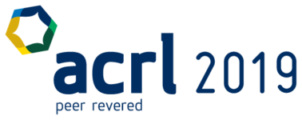Session Description:
Librarians are no longer waiting for vendors to produce software that doesn’t really do what they need it to, at a price they can’t really afford. Software companies and developers have been telling librarians what they want and need for far too long–now librarians are stepping up and saying this is no longer acceptable. Case in point is the new Integrated Library System (ILS) being developed on the open-source FOLIO Library Services Platform (LSP) in conjunction with roughly a dozen academic libraries. Over 100 academic librarians from these libraries are working on the project as Subject Matter Experts (SMEs), Special Interest Group (SIG) conveners, members of the Product Council (which is responsible for guiding the development of the product and prioritizing the work), Product Owners, and in other roles. This panel discussion will highlight why the libraries involved have decided to develop their next ILS, the pivotal role of librarians on the project, and how the project has impacted the libraries involved. We will start the session with a brief overview of the project organization and the development process, in order to frame the discussion to follow.
